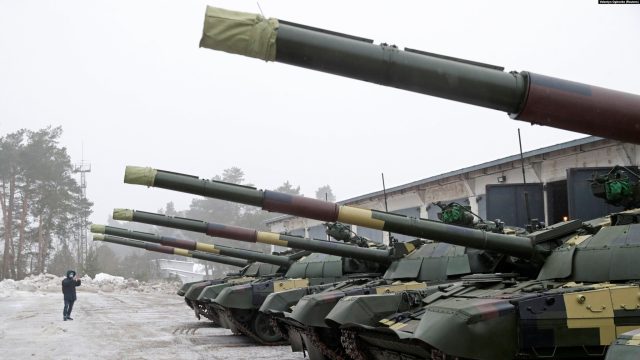
Moldova, Georgia and now Ukraine. The common link shared between these three state entities is being invaded by the Russian Federation after the collapse of the Soviet Union. If in the case of Moldova (and Ukraine prior to 2022) the invasion forces were “ethnic Russian separatists” that were backed by the Kremlin with equipment, information and unofficial manpower, Georgia was (as Ukraine is today) the target of a full-fledged military invasion.
The results presented by these interventions share distinct similarities. The Russian Federation was not able (or willing, from a strategic point of view) to fully control or annex neither of its post 1991 targets (an exception being Chechnya, which was never acknowledged as a de jure independent nation by the international community, unlike the aforementioned examples).
What Russian leadership chose to do was the formation of de facto puppet states, or “autonomous republics” as they were introduced, not annexed but by no means independent from their puppeteer, kept alive by ethnic radicals living in those regions and by military might: Transnistria in Moldova (1991), Abkhazia and South Ossetia in Georgia (2008), and the Donetsk & Luhansk People’s Republics in Ukraine (2014).
The birth of these “republics” introduced a new strategy in post-Cold War Europe, that of the frozen conflict. So let us first look at how a frozen conflict is defined and, afterwards, at the 3 reasons why Russia considers such scenarios as strategically favorable.
If you would summarize the conclusions of political scientists, a “frozen conflict” refers to a situation where a military conflict or territorial dispute exists between two or more parties, but no active hostilities are taking place. In a frozen conflict, the situation remains unresolved, with a de facto division of territories and a lack of progress towards a lasting solution.
And why does Russia love them?
1) They block NATO ascension
Two of the five requirements for a state to join the North Atlantic Treaty Organization (NATO) are “Sovereignty”, aka full control over one’s recognized territory and “Resolution of Outstanding Disputes”. Having a portion of land, no matter how big or small under the control of a foreign entity (The Russian Federation and its agents in this case) blocks states like Moldova or Georgia from seeking to become members of the alliance and be protected therefor from a future invasion. Which leads us to the second reason.
2) They offer a casus belli for further military incursion
Most people who are not attentive to the power plays in Eastern Europe couldn’t really tell you how Russia justified its wars in Georgia and Moldova, but they do remember the pretext under which things escalated in Ukraine in 2022. The ethnic Russians being discriminated against, targeted and oppressed by a non-Russian government. This was especially referring to the Russian population in the so-called Donetsk & Luhansk People’s Republics.
The creation of such entities allowed Vladimir Putin to claim “oppression” of the breakaway populations from the Ukrainian government as a reason to launch a “special military operation”. And while it most often than not evades mainstream news, Russia makes constant claims of their ethnic population being the constant target of discrimination and certain provocations in Transnistria and South Ossetia, even with the Russo-Ukrainian war still ongoing.
In the scenario of a Russian victory, these claims (generally unfounded or invented) could be used as a casus belli to justify further military action.
3) They are profitable
An illustrative instance is the frozen conflict in Transnistria, a separatist region within Moldova. It possesses numerous heavy industry facilities (as was the case with Donetsk) and holds strategic significance due to its positioning along the Dniester River. Russia, as previously stated, has provided support to Transnistria and upheld a military presence, granting it the ability to wield economic influence, govern trade routes, and exploit regional resources. Abkhazia and South Ossetia allow Russia to exert control over vital transportation routes as well, and open a new pathway of access to the Black Sea.
To conclude – one cannot tell every time if Russia achieved its main purpose or not. It certainly looks otherwise in today’s Ukraine. But NATO and the free world should never underestimate how lucrative unfinished business can be for the Kremlin



 Subscribe
Subscribe